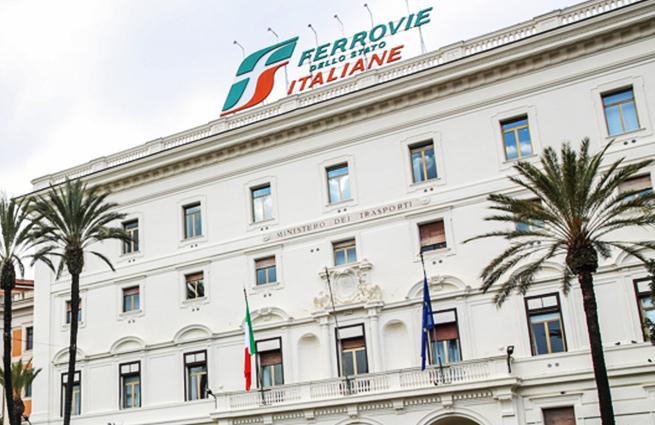FS Italiane has long encouraged and promoted the spread of a corporate culture based on ethics, integrity, fairness and legality, inspired by the Zero Tolerance for Corruption principle, of which the Group’s top management is a primary proponent and promoter.
Ferrovie dello Stato Italiane SpA carries out its activities according to a vision of corporate social responsibility founded on values of responsibility, ethics, integrity, fairness, transparency and legality in the knowledge that such reflects on the objectives and reputation of Company and Group, generating value and meeting the highest expectations of all stakeholders.
Ferrovie dello Stato Italiane SpA encourages and promotes the dissemination of a corporate culture based on ethics and integrity, one inspired by the principle of “zero tolerance for corruption”.
The Code of Ethics represents the common basis of the fundamental values and standards of conduct for the Ferrovie dello Stato Italiane Group and the compass that must direct the conduct of all parties within the Group (corporate bodies, management, employees) and all those who – directly or indirectly, permanently or temporarily – establish rapports and relations with the Group Companies.
Integrity and honesty are fundamental values enshrined in the FS Italiane Group’s Code of Ethics, manifesting the commitment to act with complete respect for legality and transparency and in repudiating and disincentivising all forms of corruption, abuse or mismanagement at any level, both in Italy and abroad.
The FS Group’s Anti-Corruption Policy enshrines the principle of zero tolerance towards corruption, on which the FS Group bases its business, in the belief that acting in accordance with legality and integrity, in addition to being a legal obligation and a moral duty, reflects on the achievement of the objectives and the reputation of individual companies and of the Group and represents an essential foundation on which to guarantee their reliability and credibility in the pursuit of sustainable success.
Ferrovie dello Stato Italiane S.p.A.'s management system for the prevention of corruption is certified in accordance with UNI ISO 37001:2016.

The Group recognises and promotes fair and healthy competition between competitors, undertaking to comply with the antitrust legislation in force in each of the countries in which it operates, as well as the deeds and decisions issued by the regulatory and competition authorities and to promote the dissemination of fair competition values – as a decisive and strategic element for a sustainable business.
Ferrovie dello Stato Italiane SpA adheres to the United Nations Global Compact, which promotes the construction of a sustainable global economy that is respectful of human and labour rights, environmental protection and the fight against corruption, as well as the Transparency International Business Integrity Forum (BIF), which engages the major national companies in the prevention and fight against corruption and in the spread of a common and shared culture of legality and the dissemination of anti-corruption instruments and practices, including in favour of small and medium-sized enterprises.
Ferrovie dello Stato Italiane SpA guarantees business management for its stakeholders consistent with the defined strategic objectives and aware of the risks that can influence the achievement of these objectives as well as affecting the value and reputation of the company. To this end, it encourages the development, constant implementation and strengthening of the system of internal checks and risk management together with compliance and anti-corruption programmes, in line with the highest standards and best practices, being aware of the importance that the culture of internal checks and risk prevention has in encouraging conscious decisions being made and helping to ensure the protection of corporate assets, the efficiency and effectiveness of company processes, the reliability of financial information, compliance with laws and regulations and the protection of the Company and Group reputation in Italy and abroad.
FS Group's Tax Strategy
Ferrovie dello Stato Italiane S.p.A., in compliance with the values set out in the Code of Ethics, and aware that a proper tax management contributes to sustainable development, with the 'Tax Strategy of Ferrovie dello Stato Italiane Group’, identifies FS Group's objective in managing the tax variable, the consequent propensity to risk, and outlines the control methods and rules of conduct to be adopted to ensure its pursuit.